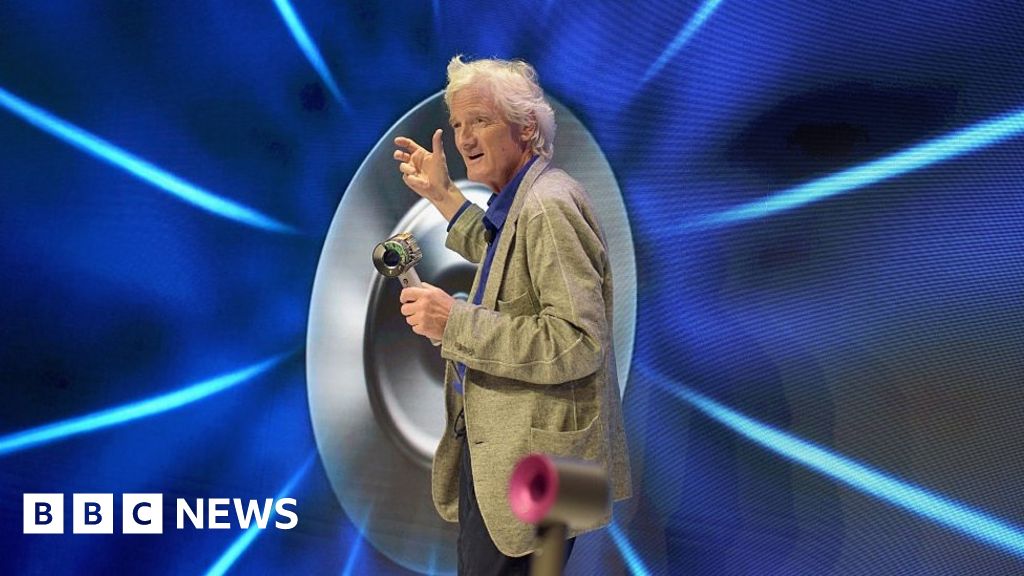Dyson To Move Head Office To Singapore

 Image copyright
Getty Images
Image copyright
Getty Images
Dyson has announced that it is moving its headquarters to Singapore, from Malmesbury in Wiltshire.
The move by the appliance maker means two executives will relocate - chief financial officer Jorn Jensen and chief technical officer Martin Bowen.
Other work at Malmesbury will not be affected and no jobs will be lost.
Chief executive Jim Rowan said it was not to do with Brexit or tax but added: "It's to make us future-proof for where we see the biggest opportunities."
He added: "We have seen an acceleration of opportunities to grow the company from a revenue perspective in Asia. We have always had a revenue stream there and will be putting up our best efforts as well as keeping an eye on investments.
"We would describe ourselves as a global technology company and in fact we have been a global company for some time. Most successful companies these days are global."
British bases
Dyson already has a presence in Singapore and in October announced plans to build its new electric car in its new factory there.
Most of its products are designed in the UK, but manufactured in Asia.
The company was keen to stress that it will still be investing money in its British bases.
Mr Rowan said it would be spending £200m in new buildings and testing facilities in Hullavington, and £44m in refreshing office space and adding new laboratories in Malmesbury as well as investing £31m for the young undergraduates at its university on the same site.
"Malmesbury has been the epicentre for us and we will continue to invest all over the UK," he added.
"The tax difference is negligible for us," added Mr Rowan, who confirmed that the company would be registered in Singapore, rather than in the UK.
"We are taxed all over the world and we will continue to pay tax in the UK."
Analysis:
Theo Leggett, business correspondent
Dyson's Chief executive Jim Rowan said today he would describe the business as a global technology company.
However, because its roots are in Britain and its founder Sir James Dyson has been a vocal supporter of Brexit, the decision to move its headquarters to Singapore is likely to make political waves.
In practical terms, the change is a minor one. Two senior executives will be transferred to the Singapore office, where the company itself will now be registered.
There will be no impact on its 4000 workers in Britain, and according to Mr Rowan, little impact on its tax affairs either. In 2017, it paid £95 million to the Exchequer.
It will continue to invest in its UK research and engineering sites in Malmesbury, London and Bristol, as well as a new centre in Hullavington, where it plans to develop a ground-breaking electric car.
But the change is still highly symbolic.
Dyson has made it clear its centre of gravity now lies in Asia, where it sees the biggest opportunities for growth.
There may be business logic in the move - but as the UK struggles to define a coherent vision for its own future, it is unlikely to be applauded here.
Company founder Sir James Dyson has been in favour of Brexit, but Mr Rowan confirmed that Britain's departure from the EU would have little impact on the firm and that they had not made any contingency plans.
"Only 2-3% of our supply chain is in Europe and that goes east and not west. We do look for disruptions in the supply chain, but at this point in time, we don't foresee any issues with the movement of goods."
Dyson also revealed its full-year results for 2018, announcing that its profits had topped £1bn for the first time, up by 33%, while turnover jumped 28% to £4.4bn.
From Chip War To Cloud War: The Next Frontier In Global Tech Competition
The global chip war, characterized by intense competition among nations and corporations for supremacy in semiconductor ... Read more
The High Stakes Of Tech Regulation: Security Risks And Market Dynamics
The influence of tech giants in the global economy continues to grow, raising crucial questions about how to balance sec... Read more
The Tyranny Of Instagram Interiors: Why It's Time To Break Free From Algorithm-Driven Aesthetics
Instagram has become a dominant force in shaping interior design trends, offering a seemingly endless stream of inspirat... Read more
The Data Crunch In AI: Strategies For Sustainability
Exploring solutions to the imminent exhaustion of internet data for AI training.As the artificial intelligence (AI) indu... Read more
Google Abandons Four-Year Effort To Remove Cookies From Chrome Browser
After four years of dedicated effort, Google has decided to abandon its plan to remove third-party cookies from its Chro... Read more
LinkedIn Embraces AI And Gamification To Drive User Engagement And Revenue
In an effort to tackle slowing revenue growth and enhance user engagement, LinkedIn is turning to artificial intelligenc... Read more

